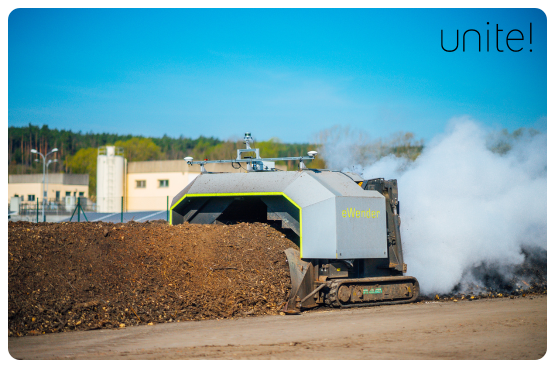
ARISE: Advancing shared use of autonomous machinery in the biowaste industry
The seed funded ARISE project aims to investigate how autonomous machinery can be shared across companies and regions, supporting sustainable practices in the biomass and biowaste sector.
The foundation of ARISE (Autonomous vehicle Routing, Interaction, and Sharing for bioEconomy) lies in earlier successful research: the development of a fully autonomous control system for an electric compost turner. Building on this breakthrough, the project now sets its sights on creating a sharing system that would enable small and medium-sized enterprises (SMEs) to access advanced autonomous machinery affordably and efficiently.
From pilot to proposal: ARISE drives automation and circular solutions in demanding work environments.
The primary goal? To improve automation, boost the utilisation rate of machinery, and support the circular economy in sectors where work often takes place under challenging and labour-intensive conditions.
With support from the Unite! Seed Fund, ARISE will carry out a set of targeted activities over the funding period of one year to lay the groundwork for a strong EU project proposal:
Preliminary studies and simulations to define technical and operational conditions for the sharing system.
Workshops and student exchanges between the project partner’s universities to align interdisciplinary approaches and foster collaboration at the bachelor's, master's, and PhD levels.
Industry engagement with European SMEs to secure interest and partnerships for the planned Horizon Europe application.
Initial expressions of interest from industry partners have already been received. The Unite! Seed Fund will enable deeper collaboration in preparation for the EU submission.
Project overview
Partners: Grenoble INP - UGA, TU Graz, Politecnico di Torino
Coordinating University: TU Graz
Duration: October 2025 – October 2026
Project members: Christian Landschützer, Professor at the Institute of Logistics Engineering, TU Graz, Overall Coordinator; Andreas Riel, Professor at the G-SCOP Laboratory at Grenoble INP – UGA
Fabrizio Lamberti, Professor at the GRAphics And INtelligent Systems research laboratory of DAUIN , Politecnico di Torino
